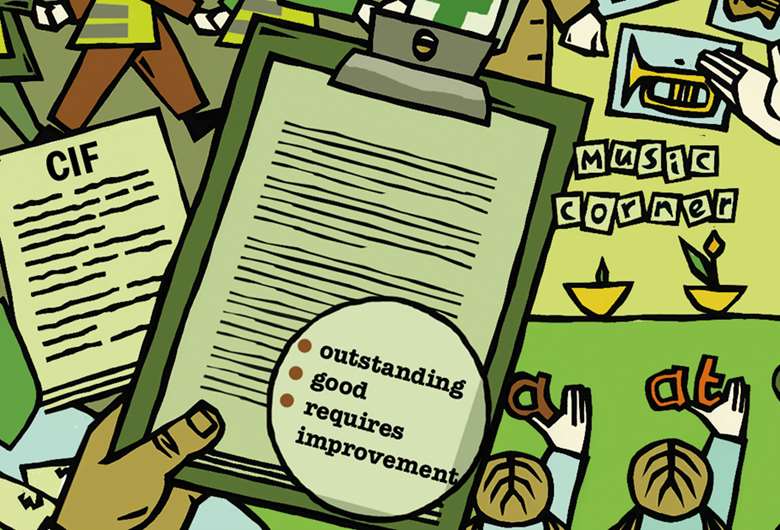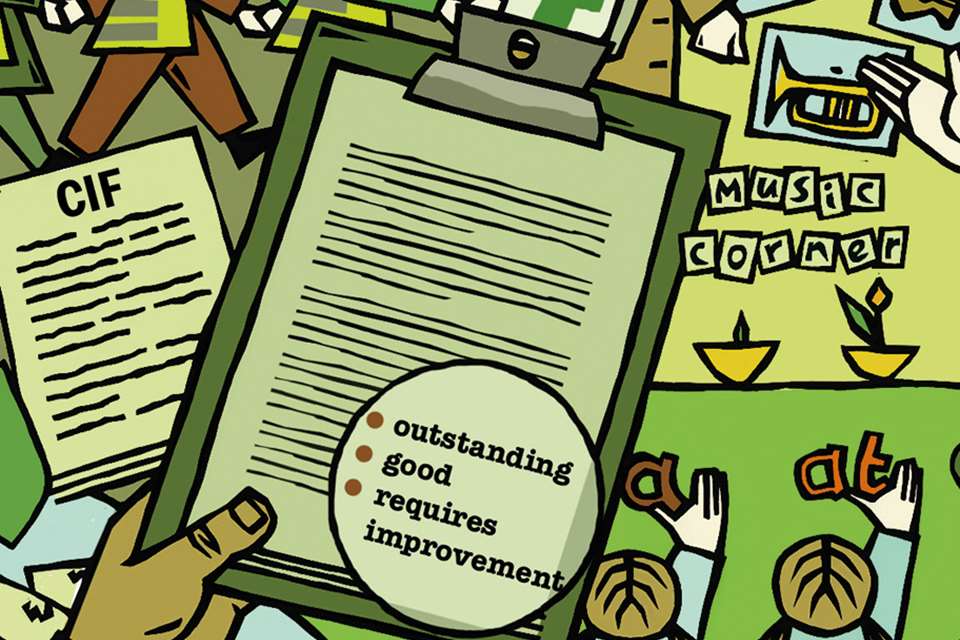Inspection: Safeguarding
Debbie Alcock
Monday, September 19, 2016
In the first of a new series on Ofsted inspections, ex-inspector and consultant Debbie Alcock gives a rundown on recent changes to safeguarding rules

 In June, Ofsted updated its safeguarding guidance for inspectors. The 34-page document, Inspecting safeguarding in early years, education and skills, reveals quite a different emphasis in what Ofsted will now look for under the new Common Inspection Framework. Online safety, never before referred to in the regulations but now included, is an example. We won't know how this will feed into the revised EYFS and associated regulations until they come out, but it is vital that you know it and how you need to incorporate the changes. Ofsted has also said that this doesn't replace any of the requirements of the current EYFS, which must still be adhered to. A lot of providers will already be doing the right things, such as ensuring staff understand the Prevent duty.
In June, Ofsted updated its safeguarding guidance for inspectors. The 34-page document, Inspecting safeguarding in early years, education and skills, reveals quite a different emphasis in what Ofsted will now look for under the new Common Inspection Framework. Online safety, never before referred to in the regulations but now included, is an example. We won't know how this will feed into the revised EYFS and associated regulations until they come out, but it is vital that you know it and how you need to incorporate the changes. Ofsted has also said that this doesn't replace any of the requirements of the current EYFS, which must still be adhered to. A lot of providers will already be doing the right things, such as ensuring staff understand the Prevent duty.
Here are the key changes, and how they can be met:
DESIGNATED SAFEGUARDING OFFICERS
It has long been an EYFS requirement that every setting must have an appropriately trained and designated member of staff to make referrals, deal with safeguarding concerns raised by staff and also ensure staff’s safeguarding knowledge is kept up to date. There must now be a trained designated safeguarding officer contactable at all times during opening hours. This does not neccessaily mean they have to be phsically present; rather they must be contactable if needed.
A lot of nurseries have already made the decision to have two designated safeguarding officers to cover holiday or sickness absence, and everyone will now have to make a decision, based on the size of the nursery, the shifts staff work or how their role functions in a team, about whether to appoint more.
PREVENT
The Prevent duty has been in place since 2015 and requires referrals where there may be a concern regarding radicalisation or terrorism. There is guidance on this available on the www.gov.uk website entitled The Prevent duty: Departmental advice for schools and childcare providers(June 2015). Now inspectors will check your policies and procedures on this, and test your staff’s knowledge.
FGM DUTY TO REPORT
In October 2015, it became mandatory for a teacher to report cases of female genital mutilation, so all staff in nursery schools and school-based nurseries should be aware of this legal obligation.
In practise though, concerns about FGM would obviously also be raised by any early years practitioner under a safeguarding policy.
ONLINE SAFETY
Settings are increasingly using tablets to record observations. The document states that the inspector will check that ‘appropriate filters and monitoring systems are in place to protect learners from potentially harmful online material’ as part of assessing whether there is an effective safeguarding culture. And don’t forget all settings need to meet the requirements of the Data Protection Act.
SPECIAL EDUCATIONAL NEEDS
Inspectors must now check that your child protection policy reflects that additional barriers can exist when recognising abuse and neglect in children with special educational needs and disabilities and that this group of children face additional safeguarding challenges.
PEER-ON-PEER ABUSE
Your child protection policy should set out the risk of peer-on-peer abuse, and your setting should have procedures for all staff to follow.
INTERNET CHECKS
An internet check means an internet search of the provider’s name, social media pages and previous Ofsted reports (for previous concerns such as investigation visits by regulatory inspectors) and will be carried out before the inspection takes place. Any information gathered can be used as part of the inspection.
If they see numerous reports with similar actions such as ‘improve staff’s knowledge of safeguarding’ and they do the inspection and find that staff’s knowledge is still weak, they are more likely to begin looking at judgements of ‘requires improvement’ or ‘inadequate’. It is often a good exercise to look at your own Ofsted reports site and see if there are any common themes so you can ensure that any issues have now been improved.
FURTHER INFORMATION
Inspecting safeguarding in early years, education and skills, https://www.gov.uk/government/publications/inspecting-safeguarding-in-early-years-education-and-skills-from-september-2015
STAFF BEHAVIOUR POLICY
This revised guidance to inspecting safeguarding shows a need for a staff behaviour policy. Most nurseries have varied policies that set standards from staff: no mobile phones while on duty, for example. A lot of settings have staff handbooks that will describe further policies on how staff work in settings. Do we now need a new single policy? Not necessarily, so long as the manager can explain them and show the inspector the references. You may think it is easier to compile a new one that collects it all in one place.






